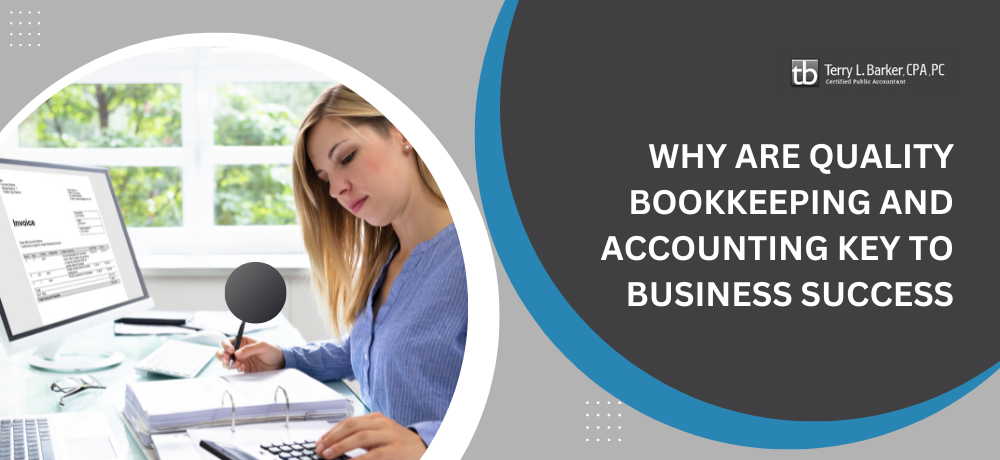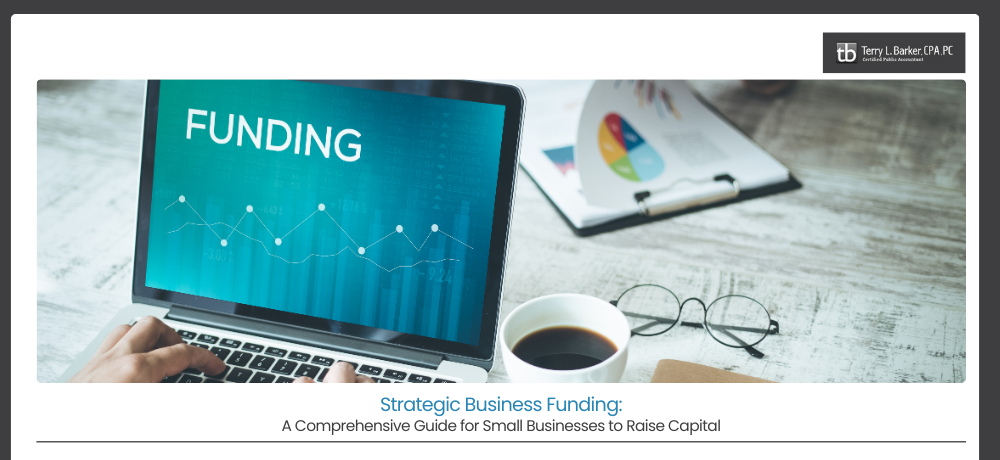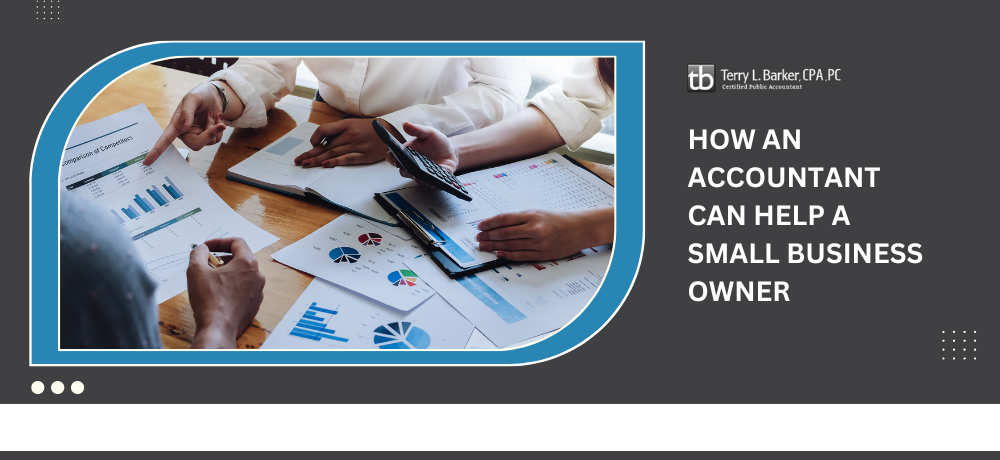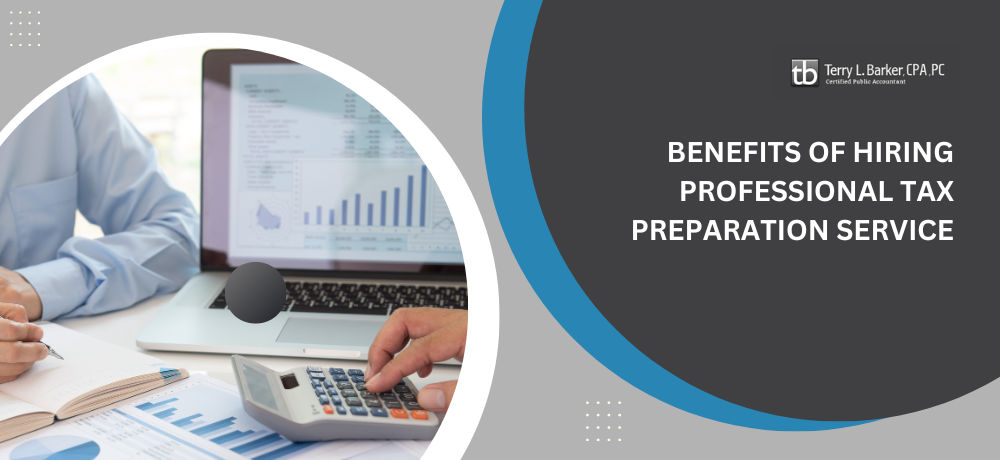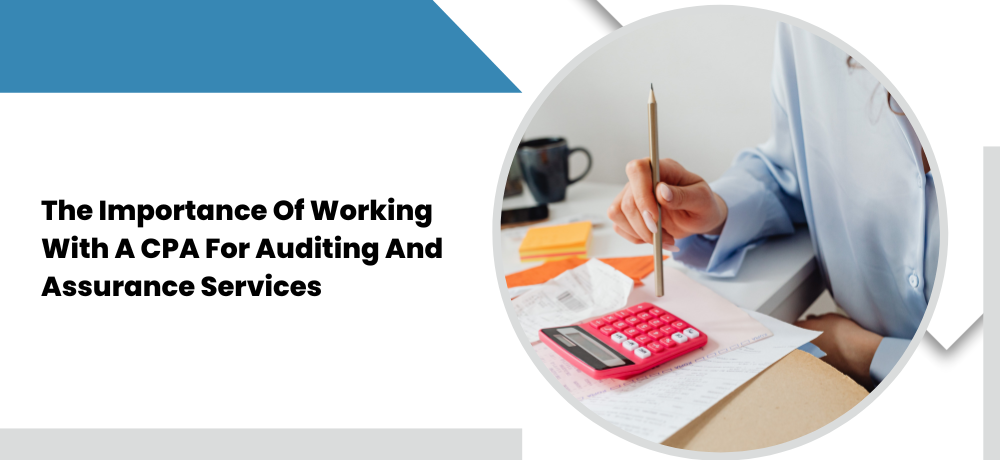Smart Tax Planning Strategies Every Growing Business Should Consider

Why Smart Tax Planning Strategies Matter for Growing Businesses
If you’re running a growing business, you already know that every dollar counts. As your operations expand, so does the complexity of your financial landscape. That’s why developing effective tax planning strategies is essential—not just to keep up with compliance, but to ensure you’re maximizing business tax savings and minimizing tax liability along the way. With careful financial planning for businesses, you can position your company to thrive, reinvesting those savings into future growth and innovation.
Understanding the Value of Proactive Tax Planning
Proactive tax planning isn’t just about filling out forms at year-end. It’s an ongoing process that requires you to anticipate changes in your business, monitor regulatory updates, and adapt your strategies accordingly. By staying one step ahead, you can identify opportunities to minimize tax liability and avoid costly surprises. This approach is especially crucial as your business scales, since tax obligations often become more complex as you add employees, expand into new markets, or diversify your offerings.
Key Tax Planning Strategies for Growing Businesses
Integrating smart tax planning strategies into your business operations can help you capture valuable tax benefits while maintaining compliance. Here are some essential approaches you should consider as your company grows:
- Choose the Right Business Structure: The legal structure of your business—whether it’s a sole proprietorship, partnership, S-corporation, C-corporation, or LLC—directly impacts your tax obligations. As your business evolves, reevaluating your structure can lead to significant business tax savings. For example, converting to an S-corporation might allow you to reduce self-employment taxes, while a C-corporation could offer advantages if you plan to reinvest profits.
- Leverage Tax Credits and Deductions: There are numerous credits and deductions available to businesses, from the Research & Development (R&D) tax credit to deductions for qualified business expenses. Keeping detailed records and working with a knowledgeable CPA can help you identify and claim these opportunities, directly reducing your tax bill.
- Optimize Depreciation Strategies: Investing in equipment, technology, or property? Accelerated depreciation methods, such as Section 179 or bonus depreciation, allow you to write off the cost of qualifying assets more quickly. This approach can improve your cash flow and support future investments.
- Plan for Estimated Taxes: As your revenue grows, so does your responsibility to make quarterly estimated tax payments. Underestimating these payments can lead to penalties, while overestimating can tie up valuable cash. Accurate forecasting and regular reviews ensure your payments are aligned with your actual earnings, keeping your cash working for your business.
- Implement Retirement and Benefit Plans: Offering retirement plans such as a 401(k) or SEP IRA not only helps attract and retain top talent but can also provide meaningful tax deductions for your business. These plans reduce taxable income and support your employees’ financial well-being.
Strategies to Minimize Tax Liability as You Grow
Minimizing tax liability is a multifaceted process that involves both short-term tactics and long-term planning. As your business expands, it’s important to regularly review your financials and adjust your strategies to reflect new realities. Consider the following growing business tax tips to stay ahead:
- Monitor State and Local Tax Obligations: Expanding into new states or localities can trigger new tax requirements, such as sales tax collection or franchise taxes. Staying informed about these obligations helps you avoid unexpected assessments and penalties.
- Utilize Income Deferral and Expense Acceleration: Timing matters when it comes to recognizing income and expenses. Deferring income to the next tax year or accelerating deductible expenses into the current year can strategically shift your tax burden, especially if you anticipate changes in tax rates or business profitability.
- Review Compensation Structures: How you compensate yourself and your team can influence your overall tax picture. Consider balancing salaries, bonuses, and distributions to optimize both personal and business tax outcomes.
- Take Advantage of Section 199A Deduction: If you operate as a pass-through entity, the Section 199A deduction may allow you to deduct up to 20% of qualified business income. Understanding the eligibility requirements and limitations is key to maximizing this benefit.
Integrating Tax Planning with Broader Financial Planning for Businesses
Effective tax planning strategies should never exist in a vacuum. By integrating your tax approach with broader financial planning for businesses, you’ll be better equipped to meet both your short-term cash flow needs and your long-term growth objectives. This holistic perspective ensures that you’re not just reacting to tax season, but proactively shaping your financial future.
- Coordinate Tax Planning with Business Goals: Align your tax strategies with your company’s vision—whether that’s expanding your workforce, investing in new technology, or entering new markets. Strategic planning ensures that tax considerations support, rather than hinder, your progress.
- Maintain Robust Financial Records: Accurate, up-to-date records are the foundation of successful tax planning. They enable you to substantiate deductions, respond to audits, and make data-driven decisions about your business’s direction.
- Consult with a Trusted Tax Advisor: Tax laws change frequently, and every business is unique. Working with an experienced CPA ensures you have expert guidance tailored to your specific circumstances, helping you adapt your strategies as your business evolves.
Staying Ahead of Tax Law Changes and Compliance Challenges
The tax landscape is constantly shifting, with new regulations, credits, and compliance requirements emerging each year. For a growing business, staying informed and agile is crucial to maintaining business tax savings and minimizing risk. Regularly reviewing your tax planning strategies with your advisor helps you take advantage of new opportunities and avoid costly missteps.
- Subscribe to Industry Updates: Keep an eye on legislative changes that could impact your business, from federal tax reforms to state-level incentives.
- Schedule Regular Tax Check-Ins: Don’t wait until year-end to assess your tax position. Mid-year reviews allow you to make timely adjustments and capture emerging benefits.
- Utilize Technology for Compliance: Modern accounting and tax software can streamline reporting, track deductible expenses, and reduce the risk of errors, freeing you to focus on running your business.
Maximizing Business Tax Savings Through Strategic Investments
As your business grows, strategic investments can play a significant role in both expansion and tax efficiency. Whether you’re upgrading equipment, expanding your facilities, or investing in research and development, understanding the tax implications of these moves is essential for optimizing business tax savings.
- Capitalize on Bonus Depreciation: Recent tax reforms have expanded the scope of bonus depreciation, allowing you to immediately deduct a significant portion of qualifying asset purchases. This can boost your cash flow and support further investment.
- Explore R&D Tax Credits: If your business invests in developing new products, processes, or software, you may be eligible for valuable research and development tax credits. These credits directly reduce your tax liability and encourage ongoing innovation.
- Consider Energy-Efficient Upgrades: Many federal and state programs offer tax incentives for businesses that invest in energy-efficient equipment or renewable energy sources. These incentives can offset the cost of upgrades while supporting sustainability goals.
Planning for Succession and Long-Term Growth
Smart tax planning strategies aren’t just about the present—they’re also about preparing for the future. As you look ahead to succession planning or potential business sales, tax considerations will play a central role in preserving your hard-earned wealth and ensuring a smooth transition.
- Evaluate Succession Options Early: Whether you plan to pass your business to family members, sell to key employees, or seek an outside buyer, early planning allows you to structure the transition for optimal tax efficiency.
- Utilize Gifting and Estate Planning Techniques: Transferring ownership interests through gifts or trusts can help minimize estate and gift taxes, preserving more value for your chosen successors.
- Coordinate with Legal and Financial Advisors: Collaborative planning with legal, tax, and financial professionals ensures your succession strategy aligns with your personal and business goals, while minimizing tax liability along the way.
Tax Planning Strategies for Managing Cash Flow Effectively
When your business is on a growth trajectory, managing cash flow becomes more than a matter of tracking income and expenses—it’s about making strategic decisions that keep your operations agile and sustainable. Smart tax planning strategies can directly impact your cash flow, giving you more flexibility to invest in new opportunities while maintaining stability.
- Project Tax Obligations Throughout the Year: Rather than scrambling at year-end, forecasting your tax liability on a quarterly basis helps you anticipate and prepare for upcoming payments. This proactive approach reduces the risk of cash shortages and allows you to allocate resources efficiently.
- Align Major Purchases with Tax Benefits: Timing significant equipment or property purchases to maximize deductions, such as Section 179 or bonus depreciation, can yield immediate business tax savings. Coordinating these investments with your overall financial planning for businesses ensures you’re optimizing both operational capacity and tax advantages.
- Monitor Accounts Receivable and Payable: Efficiently managing when you collect payments and settle bills can influence taxable income. For example, accelerating payables or deferring receivables at the end of the tax year can help minimize tax liability in certain circumstances.
Tax-Efficient Compensation and Employee Incentives
As your team expands, structuring compensation packages with tax efficiency in mind can benefit both your business and your employees. Incorporating tax planning strategies into your human resources approach supports retention, motivation, and overall financial health.
- Consider Fringe Benefits: Offering benefits such as health insurance, transportation allowances, or educational assistance can be tax-deductible for your business and often tax-free for employees. These incentives enhance your compensation package without increasing payroll tax burden.
- Implement Stock Option Plans: For companies poised for rapid growth, employee stock options can be an effective way to reward performance and align interests. Understanding the tax implications for both the business and recipients is essential to avoid unexpected liabilities.
- Utilize Deferred Compensation Arrangements: Deferring a portion of executive compensation to future years can provide tax deferral benefits for employees while helping your business manage cash flow and minimize current tax liability.
Leveraging Technology for Tax Planning and Compliance
Technology is transforming how businesses approach tax planning strategies, offering tools that streamline compliance, enhance accuracy, and provide valuable insights. As your business grows, harnessing these digital solutions supports smarter decision-making and ongoing business tax savings.
- Cloud-Based Accounting Platforms: Modern accounting software automates data entry, tracks deductible expenses, and generates real-time financial reports. This visibility enables you to identify tax-saving opportunities as they arise.
- Integrated Payroll Solutions: Automated payroll systems ensure accurate tax withholding, timely filings, and compliance with changing regulations. This reduces the risk of costly errors and frees up your team to focus on core business activities.
- Tax Planning Analytics: Advanced analytics tools can model various tax scenarios, helping you forecast the impact of different strategies on your overall tax liability. This data-driven approach supports more informed financial planning for businesses.
International Expansion and Cross-Border Tax Considerations
If your business is considering international growth, understanding the tax implications of cross-border operations is crucial. Expanding beyond domestic markets introduces new layers of complexity, but with the right tax planning strategies, you can navigate these challenges while maximizing business tax savings.
- Navigating Double Taxation: Operating in multiple countries can expose your business to double taxation. Leveraging tax treaties and foreign tax credits can help reduce your overall tax burden.
- Transfer Pricing Compliance: Setting prices for transactions between related entities in different countries requires careful documentation to satisfy tax authorities and avoid penalties.
- Managing Value-Added Tax (VAT) and Sales Tax: Understanding local indirect tax requirements ensures compliance and prevents disruptions to your supply chain.
Year-End Tax Planning Strategies for Growing Businesses
Year-end is a prime opportunity to review your financial position and implement strategies to minimize tax liability before closing the books. Thoughtful year-end planning can yield substantial business tax savings and set the stage for a successful new year.
- Accelerate Deductible Expenses: Pay outstanding bills, prepay certain expenses, or make charitable contributions before year-end to increase your deductions for the current tax year.
- Defer Income: If cash flow allows, consider postponing invoicing or other income-generating activities until the following year to defer taxable income.
- Review Asset Purchases: Evaluate whether acquiring new equipment or technology before year-end can take advantage of immediate expensing options.
- Conduct a Tax Loss Harvest: For businesses with investment portfolios, selling underperforming assets to realize losses can offset gains and reduce overall tax liability.
Staying Compliant with Changing Tax Laws
Tax regulations are constantly evolving, and remaining compliant is essential to protect your business from penalties and missed opportunities. Proactive monitoring and adaptation of your tax planning strategies ensure your business is always aligned with the latest requirements.
- Regular Policy Reviews: Schedule periodic reviews of your tax policies and procedures to incorporate legislative changes and new interpretations.
- Employee Training: Train your finance and accounting staff on current tax rules, reporting requirements, and best practices for documentation to minimize errors.
- Collaborate with Tax Professionals: Maintain open communication with your CPA or tax advisor to receive timely updates and expert guidance on emerging issues.
Using Tax Planning to Support Business Innovation
Innovation is the lifeblood of business growth, and tax planning strategies can fuel your ability to invest in new ideas. By leveraging available incentives and structuring your investments with tax efficiency in mind, you can stretch your resources further and accelerate progress.
- Claiming R&D Credits: Invest in research and development to qualify for tax credits that directly reduce your tax bill, making innovation more affordable.
- Patent Box Regimes: Explore whether your jurisdiction offers reduced tax rates on income derived from intellectual property, such as patents or trademarks.
- Collaborative Ventures: Consider joint ventures or strategic alliances that allow you to share costs and risks while accessing additional tax benefits.
Tax Planning Strategies for Business Owners’ Personal Finances
Your personal financial situation is closely tied to your business success. Integrating personal and business tax planning strategies can help you minimize overall tax liability and achieve your long-term financial goals.
- Optimize Owner Compensation: Balance salary, dividends, and profit distributions to achieve the most favorable tax outcome for both you and your business.
- Utilize Retirement Accounts: Maximize contributions to retirement plans such as solo 401(k)s or SEP IRAs to reduce current taxable income while building wealth for the future.
- Plan for Capital Gains: Strategically timing the sale of business assets or equity can help you take advantage of lower long-term capital gains tax rates.
Building a Culture of Tax Awareness in Your Organization
Embedding tax awareness into your company culture empowers everyone—from leadership to staff—to make decisions that support business tax savings and compliance. A well-informed team can identify opportunities, flag risks, and contribute to a more resilient organization.
- Regular Training and Communication: Host workshops or distribute updates on tax changes that may affect your operations or employees’ responsibilities.
- Encourage Collaboration: Foster open communication between departments—such as finance, HR, and operations—to ensure tax considerations are factored into business decisions.
- Reward Tax-Efficient Innovations: Recognize and incentivize employees who propose or implement strategies that result in measurable tax savings.
Preparing for Audits and Tax Authority Inquiries
Even with the best tax planning strategies, audits and inquiries from tax authorities can occur, especially as your business grows and attracts greater scrutiny. Being prepared ensures you can respond confidently and maintain business continuity.
- Maintain Comprehensive Documentation: Keep thorough records of income, expenses, and supporting documentation for all deductions and credits claimed.
- Implement Internal Controls: Establish processes for reviewing and approving tax-related transactions to reduce the risk of errors or omissions.
- Engage Experienced Advisors: Work with a CPA who is familiar with your business and industry to help you navigate the audit process and address any questions from authorities.
Adapting Tax Planning Strategies to Industry-Specific Needs
No two industries face the same tax challenges. Customizing your tax planning strategies to reflect the unique aspects of your sector ensures you’re capturing every available advantage and maintaining compliance with industry-specific regulations.
- Manufacturing: Take advantage of credits for domestic production, inventory accounting methods, and energy efficiency incentives.
- Professional Services: Structure compensation and retirement plans to maximize deductions and minimize self-employment taxes.
- Retail and E-Commerce: Stay current with evolving sales tax laws, especially for online transactions and multi-state operations.
- Technology: Leverage R&D credits and intellectual property-related tax incentives to support ongoing innovation.
Tax Planning Strategies for Navigating Business Mergers and Acquisitions
Growth often brings opportunities for mergers or acquisitions, which can create new avenues for business expansion but also introduce complex tax considerations. Understanding and applying effective tax planning strategies during these transactions can help you minimize tax liability and secure business tax savings that support your financial goals.
- Due Diligence on Tax Exposure: Before finalizing any deal, conduct thorough due diligence to uncover potential tax liabilities, such as unpaid taxes or unresolved audits. This step protects your business from unexpected costs and compliance issues.
- Structure Transactions for Tax Efficiency: Asset purchases and stock purchases have different tax implications. Consulting with a CPA can help you determine which structure offers the most favorable tax outcome for your specific situation.
- Utilize Loss Carryforwards: If you acquire a business with net operating loss carryforwards, proper structuring may allow you to use those losses to offset future taxable income, resulting in significant business tax savings.
- Plan for Integration Costs: Many integration expenses can be deductible. Document these costs carefully to ensure you claim all eligible deductions in the appropriate tax year.
Tax Planning Strategies for Real Estate and Property Investments
As your business grows, investing in real estate or expanding your physical footprint can be a strategic move. Smart tax planning strategies in this area can help you both minimize tax liability and enhance your financial planning for businesses.
- Depreciation and Cost Segregation: Accelerate depreciation deductions by performing a cost segregation study, which separates building components for faster write-offs. This approach can free up cash for reinvestment.
- 1031 Like-Kind Exchanges: When selling business property, consider a 1031 exchange to defer capital gains taxes by reinvesting proceeds into a similar property. This strategy preserves capital and supports continued growth.
- Interest Deductibility: Review how your property investments are financed to maximize the deductibility of interest expenses, which can reduce taxable income.
- Energy Efficiency Incentives: Federal and state programs often provide credits or deductions for energy-efficient renovations or new construction, contributing to business tax savings.
Tax Planning Strategies for Technology and Digital Transformation
Embracing new technologies can propel your business forward, but it also requires thoughtful financial planning for businesses to ensure you’re optimizing tax benefits. Integrating tax planning strategies into your digital transformation initiatives can help you achieve greater efficiency and savings.
- R&D and Technology Credits: Investments in developing new software, digital platforms, or automated systems may qualify for research and development tax credits. Document your innovation efforts to maximize these benefits.
- Capitalizing vs. Expensing: Determine whether technology purchases should be capitalized and depreciated or expensed immediately to achieve optimal business tax savings.
- Cloud and Subscription Services: Evaluate the deductibility of cloud-based software and IT subscriptions, which can often be expensed in the year incurred, improving your cash flow.
Tax Planning for Business Expansion and New Market Entry
Expanding into new markets brings fresh opportunities and unique tax challenges. Strategic tax planning strategies are essential for managing compliance and minimizing tax liability as you grow.
- Evaluate Nexus and State Tax Obligations: Entering new states or regions can trigger sales tax, franchise tax, or income tax requirements. Review nexus rules to ensure compliance and avoid unexpected penalties.
- Leverage Local Incentives: Explore tax credits or grants available to businesses investing in specific regions or industries. These incentives can significantly reduce your overall tax burden.
- Plan for Workforce Mobility: Hiring remote employees or opening new offices may affect your tax obligations. Coordinate with your CPA to manage withholding, unemployment taxes, and benefit plans across multiple jurisdictions.
Tax Planning Strategies for Managing Inventory and Cost of Goods Sold
Inventory management is a critical aspect of financial planning for businesses, especially as you scale operations. The methods you choose for valuing and managing inventory can have a direct impact on your taxable income and business tax savings.
- Choose the Right Inventory Method: Methods such as FIFO, LIFO, or weighted average can influence your cost of goods sold and taxable income. Select the method that aligns with your business model and market conditions.
- Write-Downs and Obsolescence: Regularly review inventory for slow-moving or obsolete items and record appropriate write-downs. These adjustments can reduce taxable income and free up working capital.
- Track Inventory for Tax Credits: Certain industries may qualify for tax credits based on inventory investments, such as manufacturing or food production. Consult your CPA to identify eligible credits.
Tax Planning Strategies for Charitable Giving and Community Engagement
Giving back to your community is not only rewarding but can also provide meaningful business tax savings when approached strategically. Incorporate charitable contributions into your tax planning strategies to maximize both impact and financial benefits.
- Deductible Donations: Cash and in-kind donations to qualified organizations are generally deductible, reducing your taxable income.
- Charitable Sponsorships: Sponsoring community events or initiatives may offer additional marketing benefits and potential deductions.
- Donating Inventory or Services: Donating goods or services can result in deductions based on the fair market value, supporting both your community and your business tax savings goals.
Tax Planning Strategies for Business Continuity and Risk Management
Protecting your business from unexpected disruptions is vital. Integrating risk management and continuity planning with tax planning strategies can help you minimize tax liability while ensuring your business remains resilient.
- Insurance Premium Deductions: Premiums for business insurance policies are generally deductible, lowering your overall tax bill.
- Disaster Loss Deductions: If your business suffers from a federally declared disaster, you may be eligible to deduct casualty losses, providing timely relief.
- Reserve Funds: Establishing reserve funds for future liabilities or emergencies can be structured to maximize tax efficiency and support long-term stability.
Tax Planning Strategies for Succession and Exit Planning
Preparing for eventual succession or an exit event is a hallmark of smart financial planning for businesses. Thoughtful tax planning strategies can help you preserve wealth and minimize tax liability during these transitions.
- Installment Sales: Spreading the sale of your business over several years can help you manage capital gains taxes and maintain a steady income stream.
- Employee Stock Ownership Plans (ESOPs): Selling to employees through an ESOP can provide tax advantages for both you and your business while ensuring continuity.
- Gifting and Trusts: Transferring ownership interests through gifts or trusts can help reduce estate and gift taxes, safeguarding your legacy.
Partnering with a CPA to Implement Tax Planning Strategies
Navigating the complexities of business tax savings, compliance, and financial planning for businesses requires more than just a once-a-year review. Working with a CPA who understands your industry and growth journey ensures you’re equipped with the right tax planning strategies at every stage.
- Personalized Planning: Receive guidance that reflects the unique needs and goals of your business, from entity selection to succession planning.
- Ongoing Support: Benefit from regular check-ins, updates on tax law changes, and proactive recommendations to keep you ahead of the curve.
- Trusted Partnership: Build a long-term relationship with a CPA who is invested in your success, providing peace of mind as you focus on growing your business.
Get Expert Guidance on Tax Planning Strategies for Your Growing Business
As your business continues to grow, you deserve a partner who is committed to helping you pay less tax and keep more of your money. With a proven track record of supporting business owners through every stage of growth, you can access accounting and tax preparation services that are designed to fit your needs and ambitions. If you’re ready to explore how strategic tax planning can drive your business forward, reach out directly to Terry L. Barker, CPA, PC for a personalized consultation. Start optimizing your business tax savings and financial planning by emailing terrybarker58@gmail.com today.
